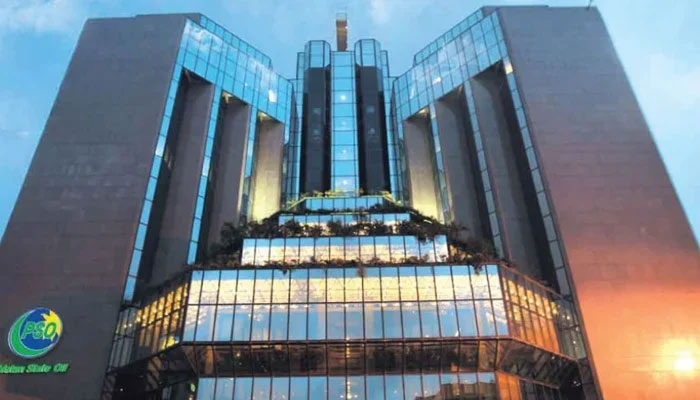Privatization
In this critical juncture, government confronts an undeniable reality: privatization is not merely an option but sole viable path forward
Pakistan's economic engine is sputtering, with growth stagnating at a mere one per cent. The budget deficit, ballooning at Rs8,500 billion, casts a shadow of uncertainty over fiscal stability, while public debt hurtles towards a staggering Rs80 trillion. In this critical juncture, the government confronts an undeniable reality: privatization is not merely an option but the sole viable path forward. It stands as an unavoidable imperative, a resolute necessity dictated by the exigencies of the moment. The decision to privatize transcends mere preference; it now embodies an urgent call to action. Here's an insight into the unfolding dynamics:
Electricity distribution companies: The 10 distribution companies (DISCOs), that are responsible for the distribution of electricity to different regions across the country, end up losing Rs600 billion a year, every year. This persistent drain on financial resources underscores the urgent need for reform and restructuring within the sector.
Electricity circular debt: Stood at Rs150 billion in 2008, and has now ballooned to a staggering Rs3,000 billion. Shockingly, projections indicate that this figure is set to climb even higher, reaching an alarming Rs4,000 billion within just one year. Such exponential growth not only exacerbates the financial strain on the energy sector but also poses a grave threat to the overall economic stability of the nation.
Sui Northern and Sui Southern: The two Sui companies are bordering on technical bankruptcy. The percentage of unaccounted-for-gas (UFG) approaching 20 per cent must be a world record. What that means is that approximately 20 per cent of the gas supplied is lost due to theft, leaks, or other inefficiencies in the distribution system. The circular debt within the gas sector is now approaching Rs3,000 billion. In light of these pressing challenges, it becomes increasingly evident that privatization is the only viable solution to address the systemic inefficiencies and financial woes plaguing the gas distribution sector.
Public Sector Enterprises (PSEs): There’s a bloodbath going on in our so-called PSEs as 210 of these entities are now indebted to the tune of Rs4,000 billion. If Vietnam privatized some 9,000 state-owned enterprises why can’t we?
Commodity Operations: The government’s so-called ‘Commodity operations’ have accumulated debt of Rs1,300 billion. Why can’t PASSCO be abandoned?
PIA: PIA stands as a striking anomaly on the global stage, an entity with accumulated debt of Rs750 billion and assets of a mere Rs150 billion. Privatization stands as the sole solution, relieving the strain on the national exchequer.
Pakistan State Oil (PSO): PSO grapples with an incessant circular debt dilemma, as its receivables soar to an unprecedented Rs800 billion. Yes, PSO's debt has surged since venturing into the liquefied natural gas (LNG) market, further complicating its financial predicament. To address this escalating crisis comprehensively, alongside privatization, deregulating the oil market emerges as a crucial strategy to foster competition, efficiency, and sustainability in the energy sector.
Pakistan demands decisive action, like never before. Privatization is the only pathway to untangle the web of inefficiencies plaguing our energy sector, reigniting the flames of economic growth and stability. The time for action is now. There is no other choice but to act now.
The writer is a columnist based in Islamabad. He tweets/posts @saleemfarrukh and can be reached at: farrukh15@hotmail.com
-
 Princess Beatrice, Eugenie Are ‘not Innocent’ In Epstein Drama
Princess Beatrice, Eugenie Are ‘not Innocent’ In Epstein Drama -
 Reese Witherspoon Goes 'boss' Mode On 'Legally Blonde' Prequel
Reese Witherspoon Goes 'boss' Mode On 'Legally Blonde' Prequel -
 Chris Hemsworth And Elsa Pataky Open Up About Raising Their Three Children In Australia
Chris Hemsworth And Elsa Pataky Open Up About Raising Their Three Children In Australia -
 Record Set Straight On King Charles’ Reason For Financially Supporting Andrew And Not Harry
Record Set Straight On King Charles’ Reason For Financially Supporting Andrew And Not Harry -
 Michael Douglas Breaks Silence On Jack Nicholson's Constant Teasing
Michael Douglas Breaks Silence On Jack Nicholson's Constant Teasing -
 How Prince Edward Was ‘bullied’ By Brother Andrew Mountbatten Windsor
How Prince Edward Was ‘bullied’ By Brother Andrew Mountbatten Windsor -
 'Kryptonite' Singer Brad Arnold Loses Battle With Cancer
'Kryptonite' Singer Brad Arnold Loses Battle With Cancer -
 Gabourey Sidibe Gets Candid About Balancing Motherhood And Career
Gabourey Sidibe Gets Candid About Balancing Motherhood And Career -
 Katherine Schwarzenegger Shares Sweet Detail From Early Romance Days With Chris Pratt
Katherine Schwarzenegger Shares Sweet Detail From Early Romance Days With Chris Pratt -
 Jennifer Hudson Gets Candid About Kelly Clarkson Calling It Day From Her Show
Jennifer Hudson Gets Candid About Kelly Clarkson Calling It Day From Her Show -
 Princess Diana, Sarah Ferguson Intense Rivalry Laid Bare
Princess Diana, Sarah Ferguson Intense Rivalry Laid Bare -
 Shamed Andrew Was With Jeffrey Epstein Night Of Virginia Giuffre Assault
Shamed Andrew Was With Jeffrey Epstein Night Of Virginia Giuffre Assault -
 Shamed Andrew’s Finances Predicted As King ‘will Not Leave Him Alone’
Shamed Andrew’s Finances Predicted As King ‘will Not Leave Him Alone’ -
 Expert Reveals Sarah Ferguson’s Tendencies After Reckless Behavior Over Eugenie ‘comes Home To Roost’
Expert Reveals Sarah Ferguson’s Tendencies After Reckless Behavior Over Eugenie ‘comes Home To Roost’ -
 Bad Bunny Faces Major Rumour About Personal Life Ahead Of Super Bowl Performance
Bad Bunny Faces Major Rumour About Personal Life Ahead Of Super Bowl Performance -
 Sarah Ferguson’s Links To Jeffrey Epstein Get More Entangled As Expert Talks Of A Testimony Call
Sarah Ferguson’s Links To Jeffrey Epstein Get More Entangled As Expert Talks Of A Testimony Call




